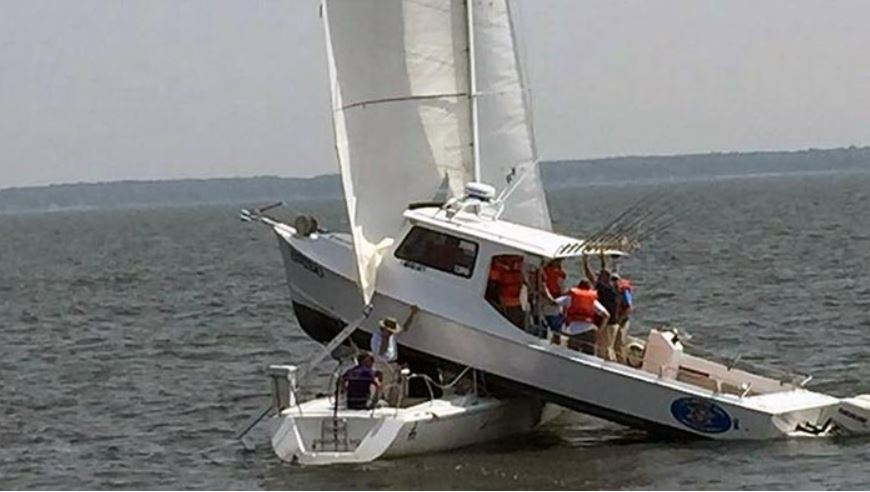How to Prevent Boat Accidents
While living in the Florida Keys and spending a great deal of time on the water, I have first hand seen my fair share of accidents, sinkers, injuries, and close calls. Here are some great ways to prevent these things from happening.
How To Prevent Boat Accidents: Written By An Actual Boater:
- Properly Loading The Boat.
- Having The Right Gear To Be Prepared.
- Taking The Time To Learn How To Control The Boat.
- Researching The Water Before Navigating The Water.
- Understanding The Upcoming Weather.
- Pay Attention To Your Surroundings.
- Don’t Forget to Pay Attention To The Boat.
These are first-hand tips, from a certified boater, on how to stay safe on the water and have the best experience.
1.) Making Sure You are Properly Loading the Boat
Safety tip numero uno! Don’t overload the boat. If going to the sand bar requires you to take your entire collection of water toys and camping equipment. This is not safe!
Stuff flying all over the place, people packed in like sardines, and holding floaties, paddle boards, and kayaks over the gunwales with their arms! Doing all of this while towing a giant lily pad behind the boat for an afternoon at the sandbar, is an accident waiting to happen.
I’m not saying you shouldn’t bring stuff with you. Floaties, coolers, grill’s, ton’s of food, a huge tent or umbrella for shade, and enough sunscreen to make a mile long slip n slide. I get it, it’s all good. The safety portion that I am talking about that we see causing a lot of boating accidents isn’t loading up and getting to the spot.
It’s the reloading and exiting the spot that we are talking about.
I’ll give this point of view from the get-go. This doesn’t need its own topic like a lot of articles like to give it. I just want it to be implied that every single point that we will be talking about today, will include the scenario with alcohol and drunk operators! That is the number one cause of boating accidents!
Doesn’t matter what the accident is, a massive percentage of them include alcohol or a drunk operator captaining the boat.
Whether it be a collision, physical injury, death, capsizing, falling overboard, or losing stuff that is flying out of the boat.
Most of these accidents have a portion of alcohol that is affecting the situation. No, not all, but most.
So, if you have overloaded the boat and barely got to the destination. Then the accident usually occurs when it’s time to go home.
Loading a boat full of stuff and intoxicated people can get sketchy, real quick!
This is when cooler lids, buckets, floaties, and all kinds of stuff starts to fly out of the boat.
Things in the bow fly up and hit the console, blocking the driver’s view, causing a panic, a swerve, or a quick chop of the throttles which can throw someone out of the boat.
It’s best to think about this situation when you are loading the boat. Then, before you take off, do a quick walk around the boat to make sure everything is tucked away.
Make sure everybody has a safe place to sit or ride, and that anything that is loose on the deck has a rope or something tying it down so that it won’t fly up at the driver or out of the back of the boat.
This will help create a fun and enjoyable experience for everyone that is going on the trip. It won’t end up in yelling and screaming and everybody mad at each other trying to find someone to blame for the accident.

2.) Being Prepared is Your Best Defense on the Water
This is a trait of most fishermen, captains, or someone who makes their living on the water. You will find that they are usually prepared.
When you are out on the water, things can happen, and they can happen quickly!
Being prepared for unforeseen events is the best way to avoid or prevent a bad boating accident.
This means having all of the proper safety gear ready to go. Life jackets, throwables, first aid kits, Coast Guard requirements, like fire extinguishers, whistles, flares, and even your registration.
Having all of these things in one quickly accessible location is being prepared. If you get stopped by the Coast Guard, FWC, or the Conservation, it makes it a lot quicker and easier to show them all of these things.
If there is a fire, you know where the fire extinguisher is and can get to it in order to put out the fire quickly. Say someone falls overboard and has trouble swimming. You need to be able to get that throwable and tossed onto them as quickly as possible.
Know how to operate the VHF radio, the flares, and being able to navigate using the compass in case the GPS goes down.
If someone slips and falls, hitting their head or cutting their arm or leg, someone on the boat needs to be able to get to the first aid kit quickly.
Thinking about what could happen and what you would do in that situation will make you aware and prepared.
So, in the event an accident happens, you know how to react and are able to help avoid a serious problem, injury, or even death.
If you are boating in the ocean and the engine dies. Does anyone know how to turn on the VHF radio and call for help before you float off deep into the ocean at the mercy of the waves?
Being prepared means making sure you have all of the safety equipment up to date, operating, and know how to operate them.
This will help you be the one that saved and prevented a horrible accident!
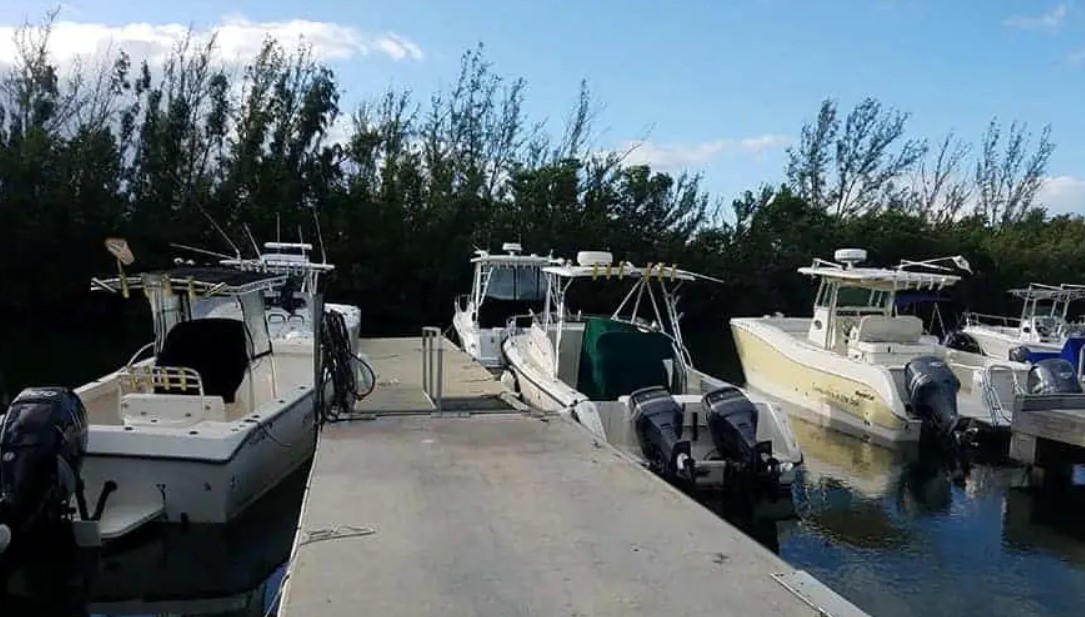
3.) Take a Little Bit of Time to Learn How to Drive!
To be honest with you, this is probably the number one thing, that doesn’t seem to get talked about nearly enough. Inexperienced boaters and boat operators.
The first timers that just rent a boat or buy a boat and head off throttle down into the abyss, causes more accidents and serious boating problems than anything else.
Top it off with alcohol, and we’ve got boat ramp fails for days!
I personally think that this is a pride issue, to be honest. I think that most people are too scared to own up and say, I really don’t know how to operate or drive a boat.
Instead, it is best to take about a half hour or even an hour would be best, to stick around a dock somewhere that isn’t slam packed full of boats, and just do some practicing!
If you want to be a safe boater and learn how to avoid accidents and drive the boat. Take a little time to practice.
Really, that hour that someone spends pulling up to a dock and then pulling away from it. Time and time again.
You could probably park at that dock over 100 times in an hour.
After doing this for an hour I guarantee anyone will be safer and more confident when pulling up at the beach, the sandbar, the restaurant, the reef, or any fishing spot.
Then park the boat without panicking and damaging the boat, the dock, or throwing someone out of the boat.
People that are inexperienced, that get sick, or are afraid of the water; when they get close to a dock, the first thing they do is try to jump out of the boat and onto the dock.
With an inexperienced operator and people jumping out of the boat unexpectedly; this is how people get crunched, run over, or seriously injured.
That half hour or so, of practice, pulling in and out of that dock, will avoid a massive amount of accidents and keep a lot of people from getting hurt.
Think about that same scenario with the boat completely overloaded, someone sick and throwing up, and the inexperienced operator completely hammered barreling down at the dock with one eye open screaming, “I got this! Don’t worry!”
We can all see how an accident is just looking for a place to happen there. If this is you, don’t be too prideful, scared, or ashamed.
You will actually be the real hero if you take that little bit of time to put some practice in right there before you take off.
We all had to learn at some point. We’ve all had the slamming and shifting and steering problems.
Everybody laughed at us and made fun. But it’s those of you that get passed that little bit of frustration and become true safe boaters that don’t have the accidents that hurt people.
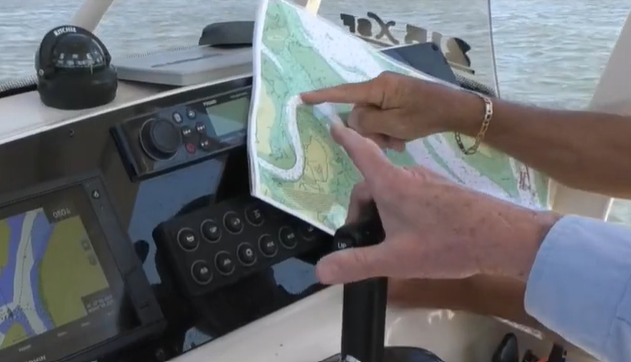
4.) Know Your Waters!
Here’s another topic that gets glossed over when getting out on the lake, river, or ocean.
Take a little time to look at google maps. A chart plotter. Even a couple of YouTube videos about how to read the water and find shallow spots and shoals.
Looking over a chart of the area you are going to be boating in that you are unfamiliar with, will help you have a heads up of what you are getting yourself and everybody with you into.
I can tell you this for sure. It’s hard to look cool when you're stuck a ground and boats are passing by or people are coming out of their houses passing the binoculars around pointing at you.
Everybody in the boat screaming and yelling at you and not having any control or being able to get the boat unstuck.
Engines sucking up sand, dirt, and grass until they stop peeing and overheat! Overheating even to the point where you blow up the powerhead! Now the engines are down and we’re calling Seatow to come and rescue us.
Yeah, it’s hard to look cool when you're that guy.
Twenty, thirty minutes is all it takes to scan over where you are plan on going. Taking it slow when you don’t know and sticking to the side so you can safely watch as you creep through the unknown area.
It’s a lot safer when you know where you are going! That’s for sure.
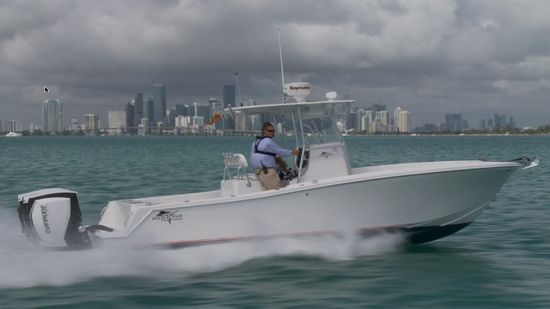
5.) Know Your Weather Windows!
The weather plays such a huge part when it comes to going out on the water.
High winds and thunderstorms will never provide a safe and fun boating experience for anyone!
(Here’s an article we wrote about Lightning, Thunderstorms and Can a Boat be Struck by Lightning?)
A windy day on open water can be an extremely dangerous experience that can lead to capsizing, sinking, or losing someone overboard.
Being able to see a storm coming, and taking the time to check the forecast for the day, before blinding heading out, will help to reduce a ton of boating accidents.
Sometimes, especially down here in the keys, we get a lot of people that are on vacation. Sometimes we can get our hearts and minds set on something so bad that we don’t see the little obvious things.
A family that hasn’t been on a much-needed vacation for 3 years finally gets out. They rent a boat and before you know it, they are performing all of the things that we have been talking about and don’t even think to check the weather.
They head out, boat overloaded, sucking down cocktails at 9 AM, forgetting the Coast Guard kit at the dock, and swerving out to sea.
Four hours later and 30 miles away from the dock, a front moves in bringing lightning storms and 40 MPH winds!
This is a recipe for someone to get killed. No sarcasm intended, at all. It’s serious.
This is another scenario that we read about in the paper and hear about on the radio. A dead family member on vacation caught in a boating accident.
Don’t get too excited to where you forget to check the weather conditions and just go for gold. Another simple fix for another cause of death.
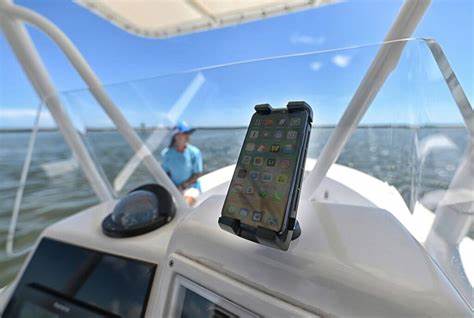
6.) See What is Coming at You
The one that’s not paying attention. It’s like the person that’s texting and driving in your lane headed straight for you!
You honk your horn and swerve off the road, watching them finally pop their head up and shoot a smile at you like it’s just a joke.
It isn’t a joke! There are no brakes on a boat. No collision alarms, nor seat belts. Doing 50 MPH on the water, playing with the GPS, changing the radio station, and playing a game on your phone leads to collisions and deaths.
Not paying attention causes swimmers to get run over and boats to collide. Hitting pilings, bridge supports, electric poles, or even other boaters.
Many times this happens because the operator has the throttle down and their head down, not paying attention.
You know the attitude, trim down for what? Got places to go and fish to catch baby, there’s no time for paying attention!
With so many of these out on the water. It’s best if you play it safe inside of your own boat and keep your eyes out for what is coming at you!
7.) Look At What is Going on Inside Your Boat
Last, but not least. Also, pay some attention to what is going on inside of the boat.
Boats sink! It happens all the time! No one knows why they just do! Or, well, most of the time you can tell why, but we won’t go there.
If you notice the bilge pumps keep coming on. Take a look into the bilge and see if you see a leak.
Maybe a hose to the live well is leaking, or the drain plug or a thru hull is leaking.
Do you smell fuel? Do you know what to do if your boat smells like fuel? These are all things that you should be aware of and taking notice of if you want to have a fun and enjoyable experience out on the water!
I hope this gives you some things to think about when trying to avoid or prevent a boating accident!
